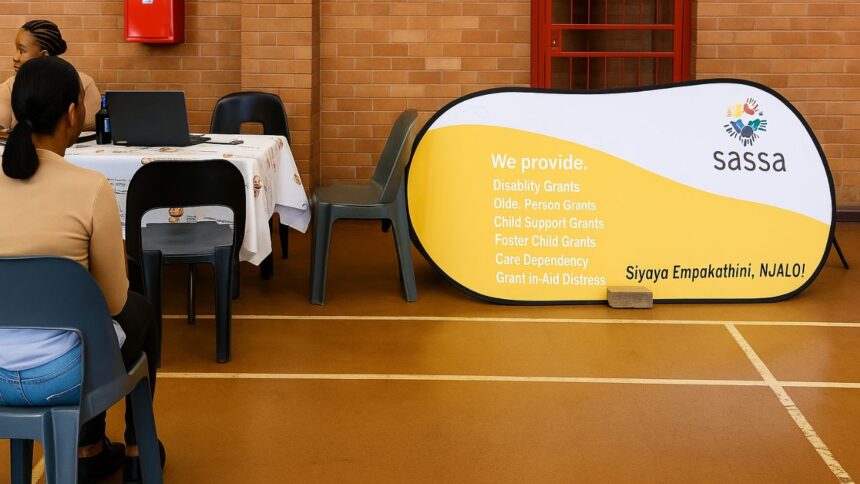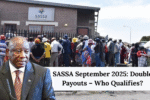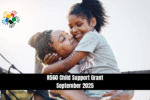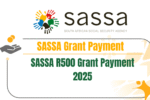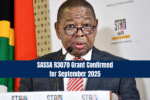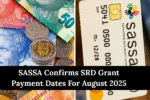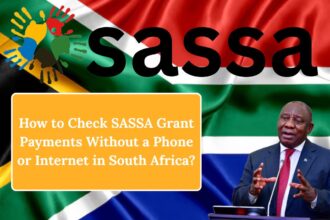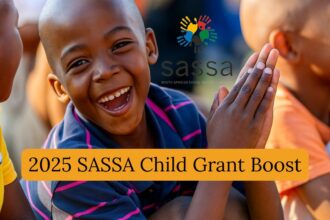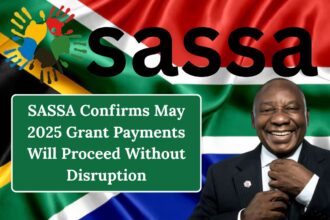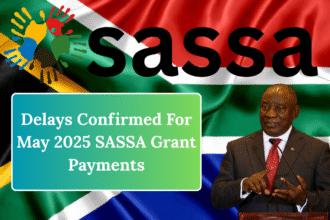In a move that has sparked national debate and widespread public concern, the South African Social Security Agency (SASSA) has enforced the controversial July SRD Grant Cut-Off Rule, disqualifying thousands of applicants from receiving the R370 Social Relief of Distress (SRD) grant. The enforcement of a R624 income threshold has placed many vulnerable South Africans in a precarious position, as even minimal earnings above the limit result in outright disqualification.
As the cost of living continues to rise in South Africa, the strict R624 rule has ignited criticism over its fairness, applicability, and real-world implications. Let’s unpack what this cut-off means, why it was implemented, and how affected citizens are coping—and fighting back.
R624 Income Threshold for the SRD Grant
The R624 income threshold refers to the maximum monthly income a South African applicant can earn to qualify for the SRD grant. This limit is based on the national food poverty line and aims to target the neediest citizens. However, critics argue that this benchmark is no longer aligned with economic realities, especially in urban centres where expenses like rent, transport, and groceries exceed basic income.
Why R624?
- Derived from the national poverty line as calculated by Statistics South Africa.
- Designed to prioritise households in extreme poverty.
- Intended to allocate limited funds effectively.
- Fails to account for regional cost differences (e.g., urban vs rural expenses).
- Does not reflect inflation and rising living costs.
Impact of the July SRD Grant Cut-Off Rule
The July SRD Grant Cut-Off Rule has excluded thousands from accessing what is often their only source of income. The effects of this disqualification are both immediate and long-term.
Economic Implications
| Category | Implication | Example | Outcome |
|---|---|---|---|
| Economic | Increased poverty | Can’t afford groceries | Reliance on debt |
| Social | Rising discontent | Public protests | Demand for policy reform |
| Psychological | Mental stress | Depression and anxiety | Higher healthcare costs |
| Community | Strained networks | Overwhelmed NGOs | Reduced aid reach |
Thousands of applicants who earn slightly more than R624 are denied access to the SRD grant, even if their actual expenses exceed their income. For single parents, youth, or unemployed graduates, this disqualification pushes them closer to financial ruin.
Real Stories: The People Behind the Statistics
Thabo, a father of two from Soweto, works part-time as a security guard and earns R650 a month. Despite his income barely covering rent and transport, he was denied the SRD grant. Thabo’s story reflects the harsh reality that a small income does not equal financial security.
Ayanda, a university dropout in the Eastern Cape, hoped the SRD grant would help her buy data and food. However, because she earns occasional money from doing hair, she also exceeded the threshold and was excluded.
These stories are not isolated cases—they are echoed in communities across South Africa.
How to Appeal a Rejected SRD Grant Application
If you’ve been unfairly excluded due to the R624 cut-off rule, there is a formal appeals process you can follow through SASSA.
Steps to Appeal an SRD Grant Rejection
| Step | Action |
|---|---|
| 1 | Gather all supporting documents (payslips, rent receipts, affidavits) |
| 2 | Visit the SASSA Appeals Website |
| 3 | Fill out and submit the appeal form |
| 4 | Upload proof of income and expenses to support your case |
| 5 | Monitor your application status regularly |
| 6 | Consider getting free legal advice through community law centres |
The appeal must be lodged within 30 days of receiving your rejection notice.
Community-Based Solutions to the SRD Grant Crisis
While thousands await feedback on their appeals or face continued exclusion, South African communities are stepping up with alternative forms of relief:
Community Support and Relief Efforts
- Food parcel distribution through churches and mosques
- Soup kitchens in informal settlements and rural villages
- Clothing banks offering second-hand garments
- Educational workshops teaching budgeting and entrepreneurship
Policy Advocacy and Grassroots Action
Civic organisations and social justice groups are pushing for:
- An increase in the R624 income threshold
- A sliding scale model to account for varying needs and expenses
- Reconsideration of automatic disqualifications based on minor income fluctuations
- A shift toward Basic Income Support for all unemployed adults
Will the SRD Grant Eligibility Criteria Change in the Future?
There’s ongoing dialogue between the Department of Social Development, SASSA, and civil society about possible changes to the SRD grant system.
| Aspect | Potential Change |
|---|---|
| Income Threshold | Increase to reflect current inflation |
| Application Process | Simplification and fewer rejections |
| Community Services | Formal integration with NGOs |
| Data Analysis | Enhanced tracking of household needs |
| Feedback Channels | Transparent appeal communication |
At present, no official amendments to the R624 rule have been confirmed, but pressure is mounting.
Frequently Asked Questions (FAQs)
What is the R624 income threshold for the SRD grant?
It is the maximum monthly income an applicant can earn to qualify for the SRD grant. Earning above this amount disqualifies applicants from receiving the grant.
Why is the R624 rule controversial?
It excludes many South Africans who still live in poverty despite having minor income, ignoring inflation and regional living costs.
How can I appeal if my SRD grant application was rejected?
Visit srd.dsd.gov.za/appeals, complete the appeal form, and upload evidence showing your financial status.
Are there alternative sources of help if I’m disqualified?
Yes. NGOs, churches, and community organisations are offering food, clothing, and legal advice. Explore local support networks.
Is there any plan to change the SRD grant cut-off rule?
Discussions are ongoing, but no official change has been made yet. Advocacy efforts are pushing for reform.
Conclusion
The July SRD Grant Cut-Off Rule has laid bare the urgent need for policy reassessment. While the rule is intended to focus support on the most financially vulnerable, it fails to reflect the diverse financial realities South Africans face today. As unemployment and inflation persist, the demand for fair, flexible, and inclusive social assistance grows stronger.

